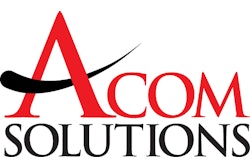Adds responsive replenishment functionality and support for RFID-enabled supply chain execution processes
Atlanta, GA — April 22, 2004 — Enterprise software giant SAP this week rolled out the latest version of its supply chain management suite, adding a new responsive replenishment scenario and support for radio frequency identification (RFID) supply chain execution processes.
The solution provider said that new features in this latest iteration of mySAP Supply Chain Management (mySAP SCM), due out in June, are intended to help enterprises gain better visibility into real-time customer demand and enable them to build more adaptive supply chains.
The new responsive replenishment process will help companies to respond to real-time customer demand, including promotion-driven demand, and will assist retailers and consumer goods companies in supporting a fully automated replenishment process on a daily or sub-daily level, according to SAP.
The solution provider said that this functionality will allow companies to manage their replenishment processes more efficiently, resulting in reduced inventory levels, shortened order cycle times and improved customer satisfaction. This will also help them meet the increasing replenishment requirements created by a growing global market and help them build customer and demand-driven supply networks that can span both SAP and non-SAP information technology environments, SAP said.
The new version uses the SAP Auto-ID Infrastructure (SAP AII), a component of SAP's NetWeaver application and integration platform, to support RFID-enabled execution scenarios within warehouse and logistics processes. These scenarios are designed to assist companies in meeting RFID mandates from government agencies, as well as major retailers such as Wal-Mart, METRO and Target.
The latest release will also include upgrades to SAP Advanced Planning & Optimization (SAP APO) for cross-industry implementation, as well as industry-specific functionality. Potential benefits, according to SAP, include a fully automatic approach for adaptive forecasting and lifecycle planning within the demand-planning functionality.
Users will also be able to employ adaptive forecasting to select optimal methods and parameters for each planning object. In the area of supply network planning, planning of subcontracting relationships has been improved to support business requirements for increased outsourcing of production capabilities, SAP said. APO also will offer companies improved transportation planning, vehicle scheduling and production planning, and detailed scheduling functionality to support requirements for increased adaptive network planning, according to the solution provider.
As for industry-specific capabilities, project manufacturing for the industrial machinery and components (IM&C) industry is a new scenario for machinery manufacturers. This scenario will allow for customer-specific engineering and project- or order-driven manufacturing, SAP said. The project manufacturing capabilities could help companies reduce their lead times and inventory and increase throughput and on-time-delivery.
Store-level forecasting and replenishment for the retail industry will help retailers avoid stock-out situations and improve inventory levels, which will help companies to lower logistics and labor costs, SAP said.
In addition, the SAP Inventory Collaboration Hub (SAP ICH) component will offer expanded supplier collaboration functionality. This scenario will provide companies with one unified view on design objects, bids and contracts, forecasts, inventory, procurement documents and shipments. The supplier collaboration capabilities will use the NetWeaver platform to offer features such as a planning grid to track daily changes in supply and demand, advanced shipping notice support, a built-in alert monitor and master data maintenance through a Web interface, according to SAP.
SAP noted that this new version has been certified in supporting the VICS (Voluntary Interindustry Commerce Standards) Association CPFR (Collaborative Planning, Forecasting and Replenishment) initiative by eBusiness Ready.










